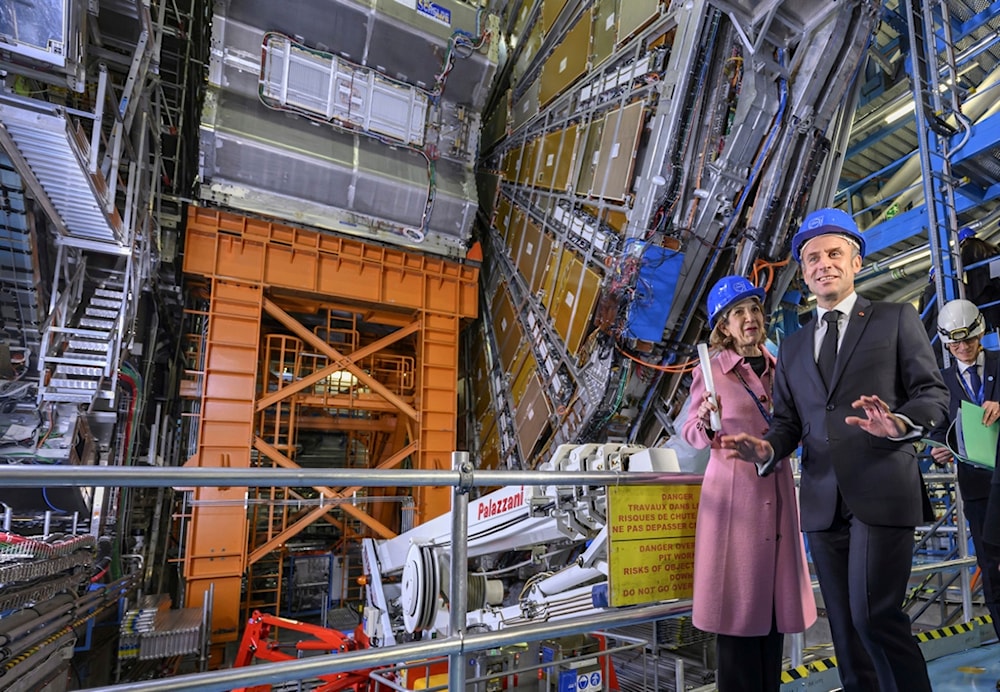CERN to end cooperation with 500 Russian scientists by November 2024
The move comes as part of the lab's decision to halt collaboration with Russia and Belarus over their involvement in the war in Ukraine.
-

Fabiola Gianotti, left, Director General of the European Organization for Nuclear Research (CERN), and French President Emmanuel Macron, front, visit the ATLAS experiment, at the CERN (the European particle physics laboratory), in Meyrin near Geneva, Switzerland, Thursday, Nov. 16, 2023. (AP)
Europe's premier physics laboratory, CERN, announced on Sunday that it will cease cooperation with scientists affiliated with Russian institutes at the end of November 2024, affecting around 500 Russian researchers.
This move comes as part of the lab's decision, initially made in June 2022, to halt collaboration with Russia and Belarus over their involvement in the war in Ukraine.
Belarusian scientists have already been impacted, with around 15 researchers from the country losing access when Belarus's five-year agreement expired in June.
Russia's cooperation agreement, which expires on November 30, will not be renewed either, leaving Russian-affiliated scientists unable to continue working on CERN-related experiments.
"This applies to scientists affiliated with Russian institutes – less than 500 today – who will have to stop such cooperation," CERN spokesman Arnaud Marsollier confirmed, noting that the decision does not affect Russian scientists working with non-Russian institutions.
Read more: Switzerland's CERN set to expel hundreds of Russian scientists
CERN has been home to a vast international community of 17,000 researchers, many working remotely on projects such as those involving the Large Hadron Collider (LHC).
The collider paved the way for breakthroughs, such as enabling scientists to confirm the existence of the Higgs boson, the particle that provides mass to other particles, such as quarks and electrons.
CERN has also looked for ways to employ the particle collider to generate energy during times of peak demand.
Lab Prepares for Major Losses
Around 90 Russian scientists have already moved to other laboratories, allowing them to continue their participation in CERN projects despite the severed ties.
The Soviet Union and Russia were never admitted as full members of CERN despite the cooperation dating back to 1955 under the USSR. Russia applied for associate membership in 2012, withdrawing its application in 2018 and acquiring observer status.
CERN is set to lose a significant financial contribution from Russia, which accounted for 4.5% of the operational costs of CERN experiments, totaling around 2.3 million Swiss francs ($2.7 million) annually.
Russia had also pledged 40 million francs for a major upgrade to the LHC, due in 2029.
However, CERN assured that other member states will cover the budget gap and that no delays in the upgrade are expected.
Read more: Russian scientists find elevated Tritium level after Fukushima release

 3 Min Read
3 Min Read








